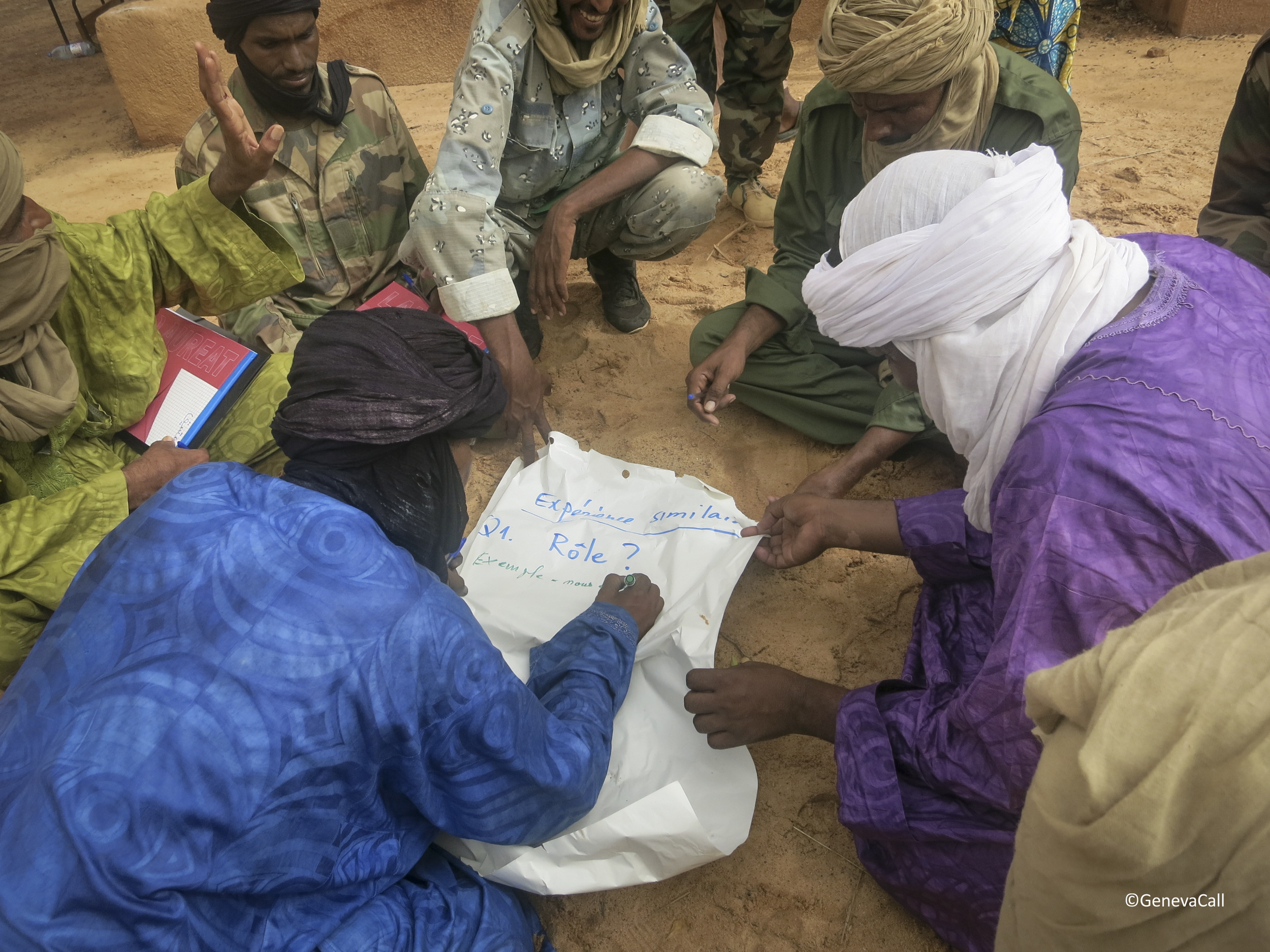
Religious Leaders & Influence
The Generating Respect Project seeks to provide systematic research that evidences the role of religious leaders as interpreters of religion and influencers of parties’ compliance with, and conversely violation of, humanitarian norms in armed conflict.
Religious leaders & armed conflict
The Generating Respect Project is underpinned by a rich literature on law and religion. Scholars have identified the important role of religion(s) in the historic development of humanitarian norms, while underscoring its continued relevance in contemporary conflicts through the shaping of identity, ideology, and aims of conflict parties (e.g. Al-Dawoody 2018 & 2011; Baderin 2008; Evans 2005; Sinha 2005; Ariyaratne 2003).
In response to the empirical reality of armed conflicts and post-conflict processes of the past decades, some scholars have sought to shift the analytical focus from religion(s) towards religious actors in an effort to unearth accountability frameworks and potentialities for compliance-generation (Cismas 2017; Cismas & Heffes 2017).
In many conflicts across the world, including the Generating Respect Project’s research contexts, religious leaders act as interpretative agents.
They have put forward forward interpretations of religious doctrine and practice that advance the respect for international humanitarian law (IHL) and international human rights law (IHRL) or, on the contrary, come into direct conflict with these bodies of law (Cismas & Heffes 2017 & 2020; Hadebe 2020).
Practitioners have increasingly sought to engage with religious actors in norm-exploration, convergence and socialisation efforts.
Notable examples include initiatives of the ICRC (2015; 2019; 2019) and Geneva Call (2014 & 2019), as well as the Fez Process under the auspices of the UN Office on Genocide Prevention and the Responsibility to Protect and the Faith for Rights Framework led by the Office for the United Nations High Commissioner for Human Rights.
Defining religious leadership
The Generating Respect Project defines religious leaders as those actors that:
Have a formal or informal affiliation to religion, spirituality, or belief,
Are non-state or state actors, exercising leadership individually or collectively, through formal or informal groups, network, organizations or institutions,
Make a claim of special legitimacy - anchored predominantly in charisma or tradition - to interpret religion and to command obedience from followers/ members/ adherents. (Cismas 2014)
Religious leaders can be individuals, such as clerics, imams, lamas, monks, nuns, priests, rabbis, traditional indigenous spiritual guides such as shamans and sukias, and lay religious leaders (UNDP 2014). Religious leadership can also be exercised collectively, by an informal or a formal group, by a network, or an institution. The term religious leaders may overlap with the concept of ‘religious personnel’ as defined in IHL (ICRC), but it is not restricted to the latter. The Generating Respect Project has a specific interest in examining forms of female religious leadership.
Religious leaders as influencers of norm-compliance
The Roots of Restraint Study emphasises the need for a solid knowledge base to inform the humanitarian engagement with societal actors, including religious leaders. Such actors are capable of significantly influencing the behaviour of armed forces and non-state armed groups (NSAGs). Indeed, humanitarian norms have received ‘greater traction’ by ‘linking the law to local norms and values’, since this connection encourages individual members of armed actors to internalise the standards, which in turn promotes restraint in war in a more durable manner (ICRC 2018: 9).
It is at this juncture that the Generating Respect Project takes shape. Drawing on the theoretical framework developed in Religious Actors and International Law, it recognises that religious leaders are relying on a special type of legitimacy, stemming from tradition or charisma, which shapes them as particularly influential societal actors in many conflict situations. Vernacularisation theories assist us in understanding how they may act as knowledge brokers (Merry 2006).
The Generating Respect Project explores factors that maximise religious leaders’ special legitimacy and therefore their influence in times of armed conflict. Relevant factors may include: the shared (or not) religion, religious affinity or alignment between religious leaders and parties to a conflict; the proximity to, relationship with and role of the religious leader within the structure of the armed actor; the structure of the armed actor, whether as a State’s integrated armed forces or a centralised, decentralised or community-embedded NSAG (ICRC 2018)); the armed actors’ perception of the religious leader; the religious leader’s societal position/perception; the security situation faced by the religious leader; the religious leader’s means of accessing parties and affected communities (e.g. direct, mediated through media, social media); their participation (or readiness to participate) in interfaith dialogue and forums; shared (or not) ethnicity with the party/ies; shared (or not) political, economic and social aims (Cismas & Heffes 2020).
The project also explores the motivations of religious leaders that may explain why they (would) put forward interpretations of religion which seek to generate respect for humanitarian norms (or on the contrary). These may include: religious values, local laws – including but not restricted to religious law –, norms and custom, protections entailed by IHL and IHRL in respect to religious personnel, religious sites, and the right to religious freedom, as well as economic, political, and social reasons.




